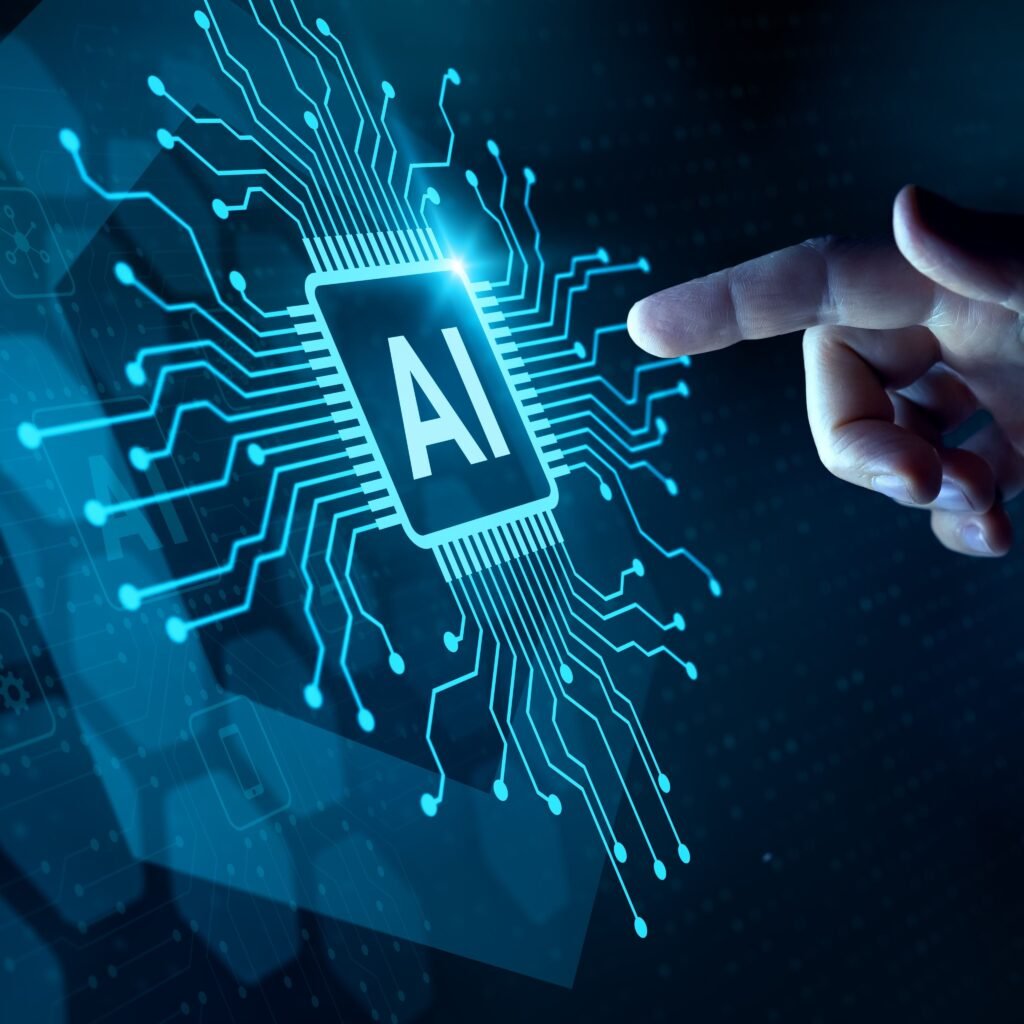Artificial Intelligence, commonly known as AI, has become one of the most transformative forces of the 21st century. From simplifying everyday tasks to revolutionizing entire industries, AI is no longer a concept confined to science fiction — it is a living, evolving reality. This article explores how AI is shaping our world, its key applications, benefits, concerns, and the future it promises.
Understanding AI
AI refers to the simulation of human intelligence in machines. These machines are programmed to think like humans and mimic their actions, such as learning, problem-solving, and decision-making. Unlike traditional software, which follows a fixed set of instructions, AI systems can adapt and improve over time through machine learning algorithms.

There are two main types of AI:
- Narrow AI – Designed to perform a specific task, like facial recognition or internet searches.
- General AI – Hypothetical systems with the ability to perform any intellectual task a human can do.
While General AI is still theoretical, Narrow AI is already present in tools like Siri, Google Assistant, and recommendation algorithms used by Netflix and Amazon.
Applications of AI in Everyday Life
AI has become deeply embedded in our daily lives. Whether you’re asking Alexa about the weather or scrolling through personalized social media feeds, AI is working behind the scenes. Here are some key areas where AI is making a significant impact:
- Healthcare: AI is being used to detect diseases early, personalize treatment plans, and assist in surgeries with precision robotics.
- Finance: From fraud detection to algorithmic trading, AI is helping financial institutions make faster, data-driven decisions.
- Transportation: Self-driving cars and smart traffic management systems are prime examples of AI changing how we move.
- Retail: Personalized shopping experiences, chatbots, and inventory management are all powered by AI.
- Education: AI tutors, grading systems, and adaptive learning platforms are making education more accessible and efficient.
AI in the Workplace
One of the most talked-about topics surrounding AI is its impact on the workforce. Many fear that AI will lead to massive job losses. While it’s true that some jobs will become obsolete, AI is also creating new opportunities.
Automation through AI can handle repetitive and mundane tasks, allowing human workers to focus on creativity, strategy, and problem-solving. For example, customer service bots can manage common queries, while human agents tackle more complex issues. In manufacturing, AI can optimize supply chains and monitor equipment health, reducing downtime and costs.
Benefits of AI
The benefits of AI are vast and varied:
- Efficiency and Speed: AI can process massive amounts of data at speeds impossible for humans.
- Accuracy: In fields like medical diagnostics or precision agriculture, AI reduces the chances of human error.
- Personalization: Whether in marketing, entertainment, or education, AI tailors experiences to individual users.
- Cost Reduction: Automation through AI can significantly lower operational costs in the long run.
Ethical Concerns and Challenges
Despite the many benefits, the rise of AI brings several ethical and societal concerns:
- Job Displacement: While AI creates new roles, many existing jobs are at risk of being automated.
- Bias in AI: Since AI learns from data, it can inherit and even amplify existing biases if not carefully monitored.
- Privacy Issues: AI systems often rely on vast amounts of personal data, raising concerns about surveillance and data misuse.
- Lack of Transparency: Many AI systems operate as “black boxes,” making it difficult to understand how they arrive at certain decisions.
Addressing these issues requires robust ethical frameworks, transparent algorithms, and inclusive policies.
AI and Creativity
Contrary to the belief that AI lacks creativity, it is now producing art, music, literature, and even scientific research. Tools like DALL·E and ChatGPT demonstrate that AI can generate creative outputs that rival human work. However, it still lacks genuine emotions, intuition, and subjective experiences — elements central to human creativity.
The fusion of human creativity and AI tools is giving rise to new art forms and pushing the boundaries of innovation. Artists, writers, and musicians are now collaborating with AI to produce content that was previously unimaginable.
Future of AI
The future of AI holds incredible promise. Experts predict that AI will play a critical role in solving some of humanity’s biggest challenges — from climate change to global pandemics.
Emerging technologies such as AI-driven quantum computing, neural interfaces, and advanced robotics are already in development. These innovations could lead to breakthroughs in medicine, clean energy, and sustainable living.
However, the future of AI must be guided carefully. Governments, industries, and civil society must collaborate to ensure that AI development aligns with human values and global needs.
Responsible AI Development
To maximize the positive impact of AI, responsible development is crucial. This involves:
- Ethical AI frameworks: Designing systems that prioritize fairness, accountability, and transparency.
- Inclusive datasets: Ensuring that training data represents diverse populations to avoid biased outcomes.
- Regulation and governance: Creating international standards and policies to oversee AI deployment.
- Public awareness: Educating citizens about how AI works and its implications on their lives.
Conclusion
AI is not just a technological trend — it is a foundational shift in how we interact with the world around us. Its influence spans across industries, reshapes economies, and redefines what it means to be human in a digital age.
As AI continues to evolve, society must adapt thoughtfully, embracing the opportunities it brings while addressing the risks it poses. The future of AI is one we all share — and shaping it responsibly is a task that requires cooperation, creativity, and vision.
Whether you’re a tech enthusiast, business leader, or everyday consumer, understanding AI today will empower you to thrive in tomorrow’s world.
